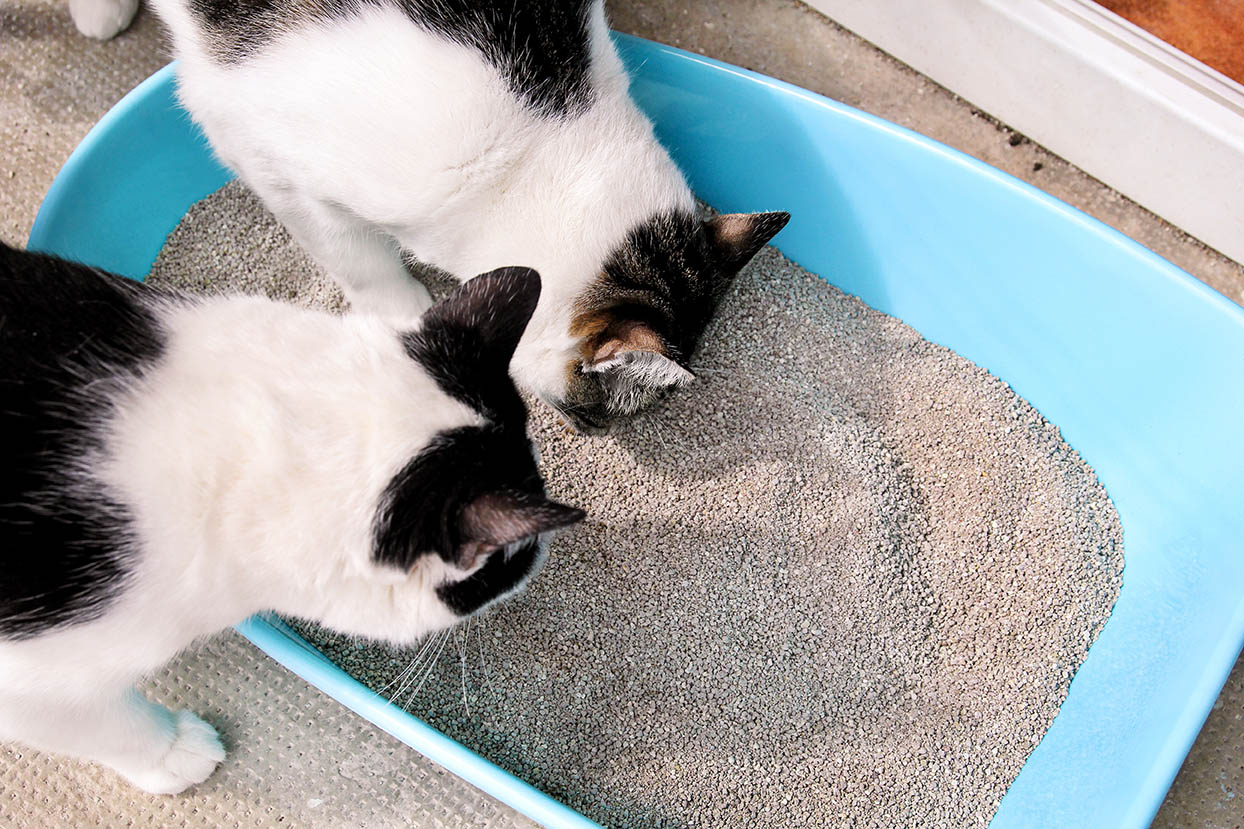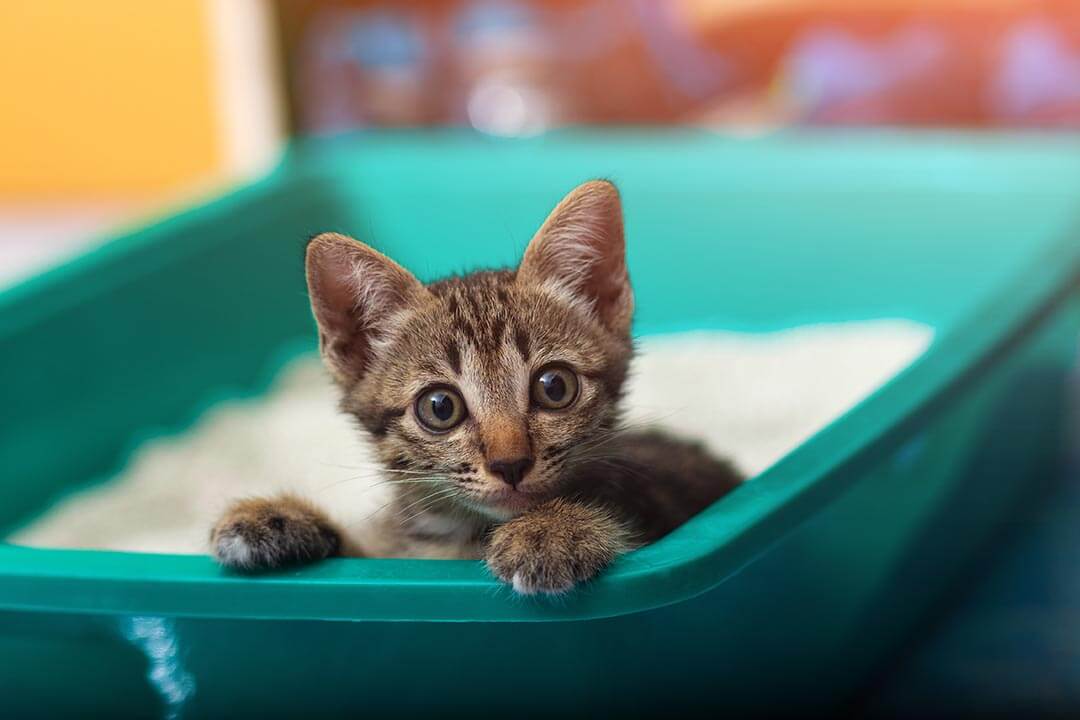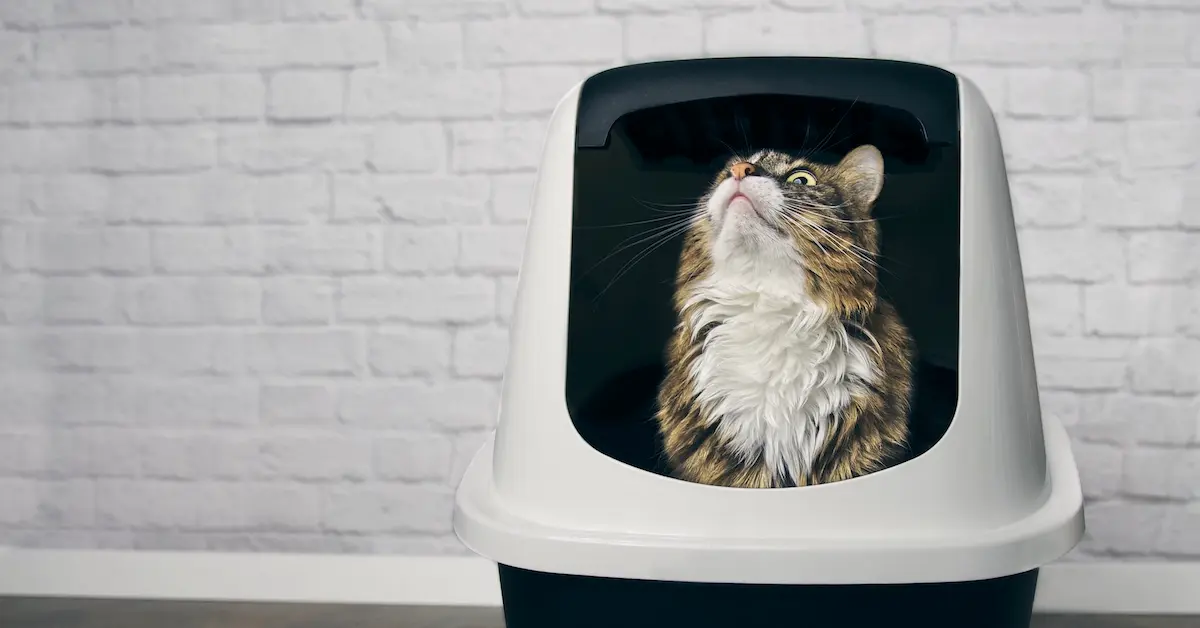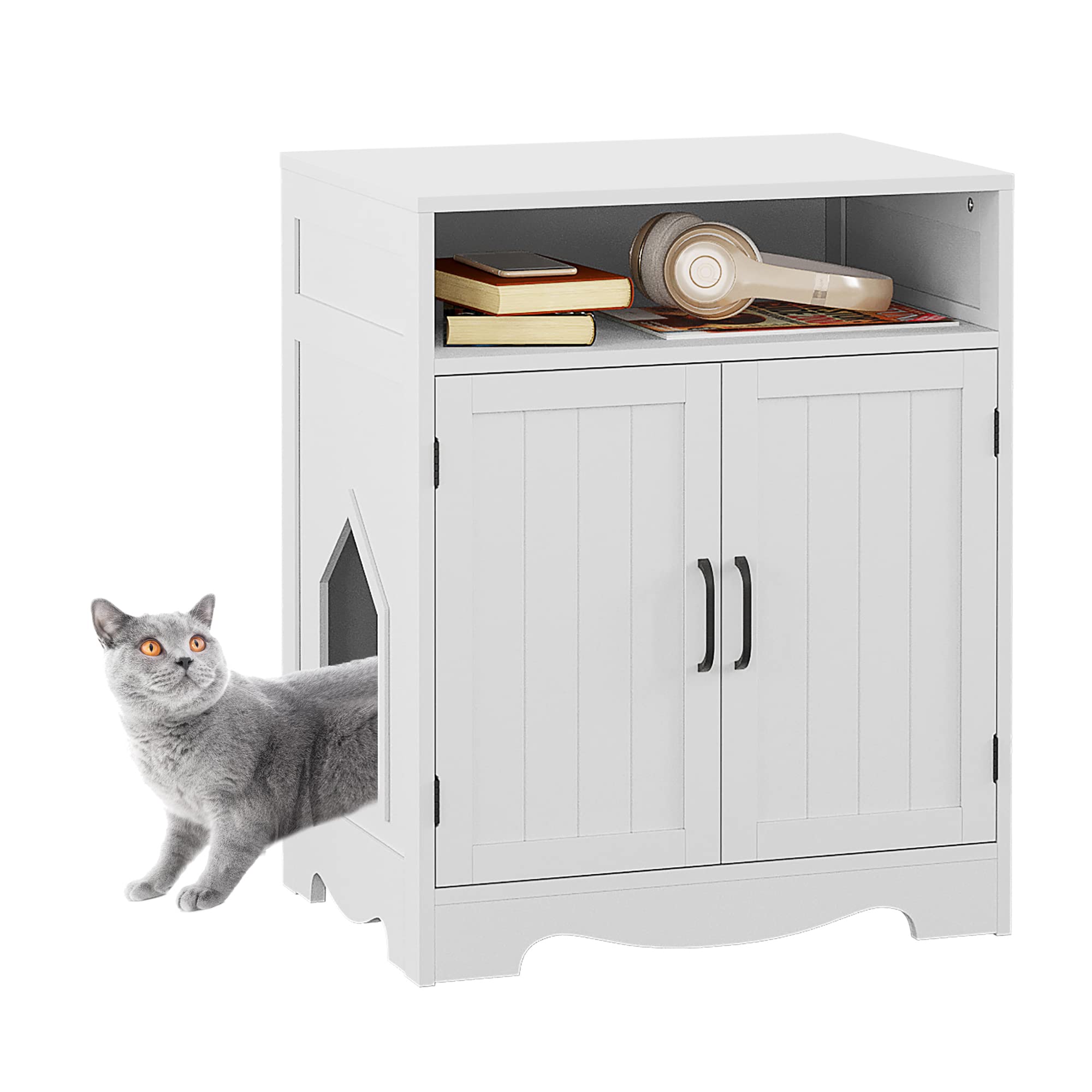Cats play in the litter box to satisfy their natural curiosity and playfulness. This behavior is especially common in kittens, who use play to explore and understand their environment.
It’s important to provide alternative sources of entertainment for your cat to deter them from using the litter box for play. Cats’ fascination with the litter box can be puzzling for pet owners, but it’s often rooted in their innate curiosity and desire for stimulation.
Understanding the reasons behind this behavior can help in addressing it effectively. In the following sections, we’ll delve into the possible explanations for this behavior and explore ways to redirect your cat’s playfulness away from the litter box.
The Curious Behavior Of Cats
Cats are known for their curious and sometimes quirky behavior. One such behavior that often leaves cat owners puzzled is when their feline friends engage in playtime inside the litter box. Understanding the reasons behind this behavior can provide insight into the natural instincts and tendencies of our beloved pets.
Natural Instincts At Play
When it comes to cats, their natural instincts play a significant role in their behavior, including their fascination with the litter box. In the wild, cats are known for their meticulous grooming habits and instinct to cover their waste to avoid attracting predators. This instinct can translate into playful behavior in the litter box, as cats may see it as a place to engage in activities that mimic their natural behaviors, such as digging and scratching.
Curiosity And Exploration
Cats, especially kittens, are naturally curious and often use play to understand their world. Their curiosity can extend to their litter box, which might seem like an unusual playground. They may paw at the litter, jump in and out of the box, or even playfully roll around, as a way of exploring and engaging with their environment.

Credit: www.catster.com
Reasons Why Cats Play In The Litter Box
Cats may play in the litter box due to curiosity and playfulness, especially kittens who use play to explore their surroundings. Additionally, an anxious or stressed cat may find comfort in a familiar and safe place, such as a covered litter box.
It’s important to keep cats engaged with toys and activities to prevent excessive litter box play.
Comfort And Security
Cats may find the litter box to be a source of comfort and security. It can serve as a safe and familiar space where they feel protected, especially if the litter box is covered. Anxious or stressed-out cats may seek refuge in the litter box, as it provides a sense of security in an otherwise uncertain environment.
Texture And Sensory Stimulation
Some cats are drawn to the texture of the litter and find it enjoyable to roll in. The cool and soothing sensation may be similar to rolling on a soft carpet or grass. Additionally, playing in the litter box can provide sensory stimulation, which may help alleviate boredom and stress for the cat.
Cats, especially kittens, are naturally curious and often use play to understand their world. Their curiosity may lead them to view the litter box as an unusual playground. They may paw at the litter, jump in and out of the box, or playfully roll around, using it as a source of entertainment and exploration.
Understanding Your Cat’s Behavior
Understanding your cat’s behavior can be both fascinating and bewildering. Cats have unique ways of expressing themselves, and their actions often reflect their instincts, emotions, and personality. One common behavior that may puzzle cat owners is their tendency to play in the litter box. This unusual behavior can be attributed to various factors, including anxiety and stress relief, as well as playfulness and entertainment.
Anxiety And Stress Relief
Cats, especially those experiencing anxiety or stress, may seek refuge in the litter box. The enclosed space provides a sense of security and comfort, offering a safe haven for cats to retreat to when feeling overwhelmed. This behavior can be a coping mechanism for cats dealing with changes in their environment, such as moving to a new home or encountering unfamiliar situations. It’s essential to create a calming environment for your cat to reduce their stress and prevent them from seeking solace in the litter box.
Playfulness And Entertainment
Curiosity and playfulness are inherent traits in cats, and they often explore their surroundings through play. The texture and consistency of the litter may appeal to cats, prompting them to engage in playful behavior such as digging, rolling, or jumping in and out of the box. Providing your cat with stimulating toys and interactive play sessions can redirect their playful instincts away from the litter box, ensuring they have alternative sources of entertainment and mental stimulation.
Managing Your Cat’s Litter Box Play
It’s common for cats to play in their litter box, as it’s a natural behavior for them. This can be attributed to their curiosity and playfulness, as they may paw at the litter, jump in and out of the box, or even playfully roll around.
If the behavior becomes excessive, consulting a veterinarian or animal behaviorist is recommended.
Enrichment And Engagement
Cats are naturally curious and playful animals, and their tendency to engage in activities like playing in the litter box may stem from a lack of mental and physical stimulation. By providing various enrichment opportunities, you can redirect their attention and discourage this behavior.
- Introduce interactive toys and puzzle feeders to keep your cat mentally engaged.
- Set up climbing structures and scratching posts to fulfill their instinctual urge to explore and stretch.
- Rotate toys and create new play environments to keep things interesting for your feline friend.
Redirecting Attention
If your cat is consistently playing in the litter box, it may indicate a need for redirection and alternative outlets for their energy. By redirecting their attention, you can discourage this behavior and encourage more appropriate activities.
- Provide regular play sessions to channel their energy and prevent boredom.
- Designate specific playtime with interactive toys to keep them engaged and entertained.
- Offer scratching posts and cat trees to redirect their natural instincts and prevent them from using the litter box for play.
Dealing With Excessive Behavior
If your cat plays in the litter box, it could be normal behavior. However, excessive digging or scratching may indicate a problem. Reach out to a veterinarian or animal behaviorist for guidance. Encourage your cat’s engagement with toys and exclusive playtime to deter litter box antics.
Signs Of Concern
If your cat excessively plays in the litter box, watch out for signs of concern such as prolonged digging, rolling, or spending extended periods inside the box. These behaviors may indicate underlying stress or health issues.
Seeking Professional Advice
When dealing with excessive litter box behavior, consider seeking professional advice. A veterinarian or animal behaviorist can provide insights and strategies to address the root cause of your cat’s excessive play in the litter box.

Credit: www.reddit.com
Tips For Discouraging Litter Box Play
It can be concerning when your cat starts playing in the litter box, but there are ways to discourage this behavior. By providing alternative toys and creating diversions, you can redirect your cat’s attention away from the litter box.
Provide Alternative Toys
If your cat is using the litter box as a playground, offer a variety of toys to keep them entertained. Interactive toys like feather wands or laser pointers can engage your cat’s hunting instincts and provide mental stimulation.
Create Diversions
Distract your cat from the litter box by creating other play opportunities. Rotate their toys regularly to keep things interesting and set aside dedicated playtime each day to bond with your cat.
Common Misconceptions And Myths
Contrary to popular belief, cats playing in their litter box is perfectly normal behavior. In fact, it’s common for cats to dig and scratch in their litter box as a way to relieve stress and boredom. However, if this behavior becomes excessive or problematic, it’s best to consult with a veterinarian or animal behaviorist.
Cats are unique creatures that have their own set of behaviors and habits. One of the most common habits that cats have is playing in their litter box. However, many cat owners misunderstand this behavior, leading to several misconceptions and myths. In this section, we will address these misconceptions and myths and provide you with the right information about your cat’s behavior.
Misinterpretation of Behavior
One of the most common misconceptions about cats playing in their litter box is that it is a sign of improper litter box training. However, this is not true. Cats play in their litter box for various reasons, including boredom, curiosity, and comfort.
Another misconception is that cats play in their litter box because they are trying to cover up their waste. While this might be true in some cases, it is not always the reason behind their behavior. In fact, cats might play in their litter box even when it is clean and empty.
Addressing Stereotypes
There are several stereotypes associated with cats playing in their litter box, including that it is a sign of a dirty or smelly litter box. However, this is not always the case. Cats might play in their litter box even when it is clean and odor-free.
Another stereotype is that cats who play in their litter box are sick or have a medical condition. While excessive litter box behavior might be a sign of illness, playing in the litter box occasionally is perfectly normal.
It is essential to understand that cats are unique creatures with their own set of behaviors and habits. Playing in their litter box is one of these behaviors and should not be misunderstood or stigmatized. By knowing the right information about your cat’s behavior, you can provide them with the best care and attention they deserve.

Credit: heartofchelsea.com
Final Thoughts On Cat Behavior
Cats may play in the litter box due to curiosity or as a form of stress relief. It’s normal behavior, but if excessive, consult a vet for advice on redirection methods for your feline friend.
Appreciating Feline Quirks
Cats, especially kittens, are naturally curious and often use play to understand their world. This curiosity can extend to their litter box, which might seem like an unusual playground. They may paw at the litter, jump in and out of the box, or even playfully roll around. Comfort and Play: Some cats find the texture of the litter enjoyable to roll in. It may feel cool and soothing to them, similar to how they might roll on a soft carpet or grass.
Building A Strong Bond
To strengthen your bond with your cat, consider purchasing some new toys, blocking out some cat-exclusive time, and showing your kitty there’s more fun to be had outside the litter box. While there’s not much you can do about your cat’s instincts, there are plenty of ways to keep your pet engaged so they don’t turn to the litter box for entertainment. Remember, if your cat occasionally plays in the litter or regularly digs in the litter box, it’s perfectly normal. If the duration of digging and scratching becomes excessive and problematic, reach out to your veterinarian or an applied animal behaviorist.
Frequently Asked Questions
Is It Normal For Cats To Play In Their Litter Box?
It is normal for cats to play in their litter box occasionally, as it can be entertaining for them.
How Do I Get My Cat To Stop Playing In The Litter Box?
To prevent your cat from playing in the litter box, provide engaging toys and exclusive playtime. Show them fun activities outside the box to redirect their attention. If excessive digging persists, consult a veterinarian or animal behaviorist for further guidance.
Why Does My Cat Play And Lay In The Litter Box?
Cats may play or lay in the litter box due to anxiety, stress, or simply out of curiosity and playfulness. It’s normal behavior, but excessive digging should be discussed with a vet. Providing toys and cat-exclusive time can redirect their focus.
Why Is My Cat Rolling In The Litter Box?
Cats may roll in the litter box for comfort, play, or to relieve stress and boredom. It’s normal behavior, but excessive digging may signal a problem. Encourage play outside the box and consult a vet if needed.
Why Does My Cat Play In The Litter Box?
It’s normal for cats to occasionally play in their litter box. They may paw at the litter, jump in and out of the box, or even roll around. However, if this behavior becomes excessive or problematic, consult with your veterinarian or an applied animal behaviorist.
Conclusion
If your cat plays in the litter box occasionally, it’s normal behavior. However, excessive digging may signal a problem. To address this, consult a vet or animal behaviorist for guidance. Engage your cat with toys and quality time to redirect their focus away from the litter box.



